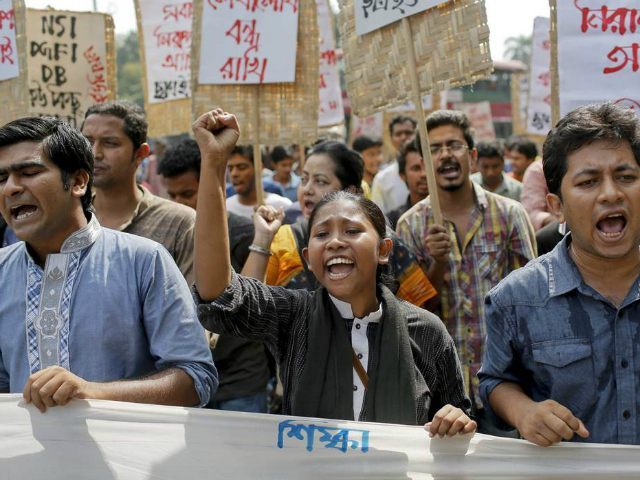After a recent spate of killings of members of religious minorities by Islamic extremists, the supreme court of Bangladesh has begun hearing arguments challenging Islam’s privileged status as official state religion, a measure applauded by religious liberty activists and minority leaders.
In 1988, Bangladesh’s military government amended the country’s constitution to declare Islam as the official state religion. That very same year, a group of 15 prominent writers, former judges, educators and cultural activists filed a petition contesting the legitimacy of the move, but the courts did not act to review the petition until now.
In recent months Bangladesh has experienced a “surge in killings” of members of Hindu, Christian and Shi’ite religious minorities, which authorities have said are the work of Islamic extremist groups.
Despite warnings from U.S. intelligence that the Islamic State is stepping up recruitment activity in the South Asian country, the Bangladeshi government has insisted that its Islamist problems are home grown.
“We have made arrests on each and every so-called ISIS-claimed attack,” said one Bangladesh police official. “The attackers have confessed their crimes in court. They have also confessed being a Jamaatul Mujahedin Bangladesh member, and denied any linkage with ISIS,” he said.
On February 29, Bangladesh’s Supreme Court officially began hearing arguments on the petition disputing the constitutionality of the adoption of Islam as the state religion.
Bangladesh’s original constitution, adopted soon after the nation split from Pakistan in 1971, declared the country to be a secular state.
It was the military ruler H. M. Ershard who decreed Islam to be the state religion in 1988, inserting an eighth amendment to the constitution to that effect. The legality of that move is what is now being disputed.
Religious minority leaders have commended the high court’s move to reexamine the state religion issue.
Bishop Bejoy N. D’Cruze of Sylhet, chairman of the Catholic bishops’ Christian Unity and Interreligious Dialogue Commission, said that the decision to review the petition inspires great hope for religious minorities.
“When a state officially accepts a state religion, then it puts barricades for communal harmony because it recognizes supremacy of a particular religion and makes other religions inferior,” D’Cruze said, adding that recent extremist attacks on religious minorities are an indirect consequence of the adoption of a state religion.
“We hope and demand that every religion in Bangladesh are put on an equal footing in terms of status and respect,” he said.
Another religious leader, Govinda Chadra Pramanik, secretary of Bangladesh National Hindu Grand Alliance, said that by sponsoring Islam as the official religion, the state has created grounds for the persecution of minorities, especially Hindus.
“The state religion established the supremacy of Islam over other religions, offering a weapon to radical Islamists to abuse minority communities. Moreover, Islam gets more attention from the state, not other religions, which is an obstacle to interfaith harmony,” he said.
“As the state religion, Islam put psychological pressure on minorities, and makes them vulnerable to abuse and exploitation. The court must come to the right decision and withdraw it,” he added.
Muslims make up some 90 percent of Bangladesh’s population, while Hindus account for 8 percent and other religions—including Buddhism and Christianity—make up the rest.
Follow Thomas D. Williams on Twitter @tdwilliamsrome Follow @tdwilliamsrome

COMMENTS
Please let us know if you're having issues with commenting.